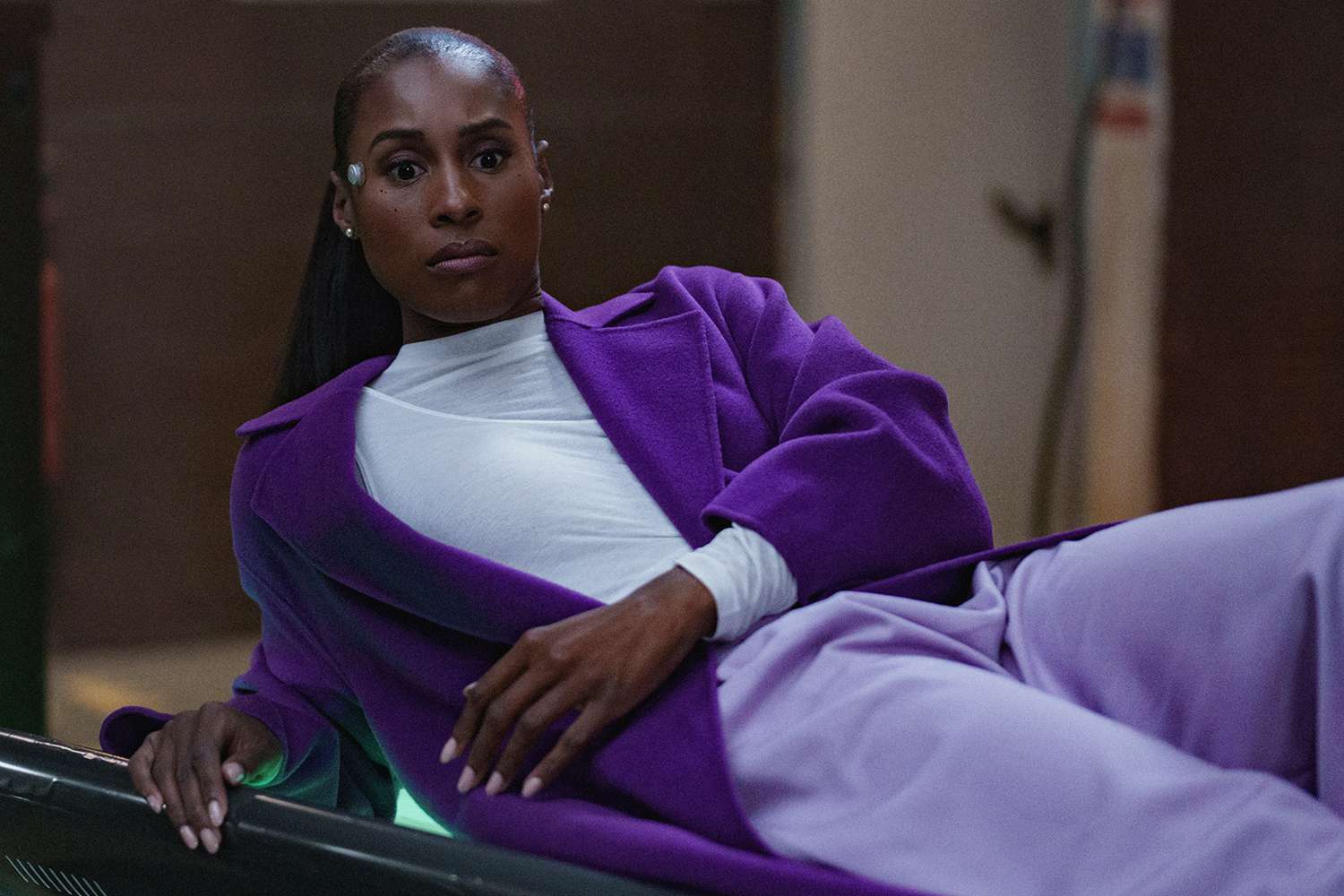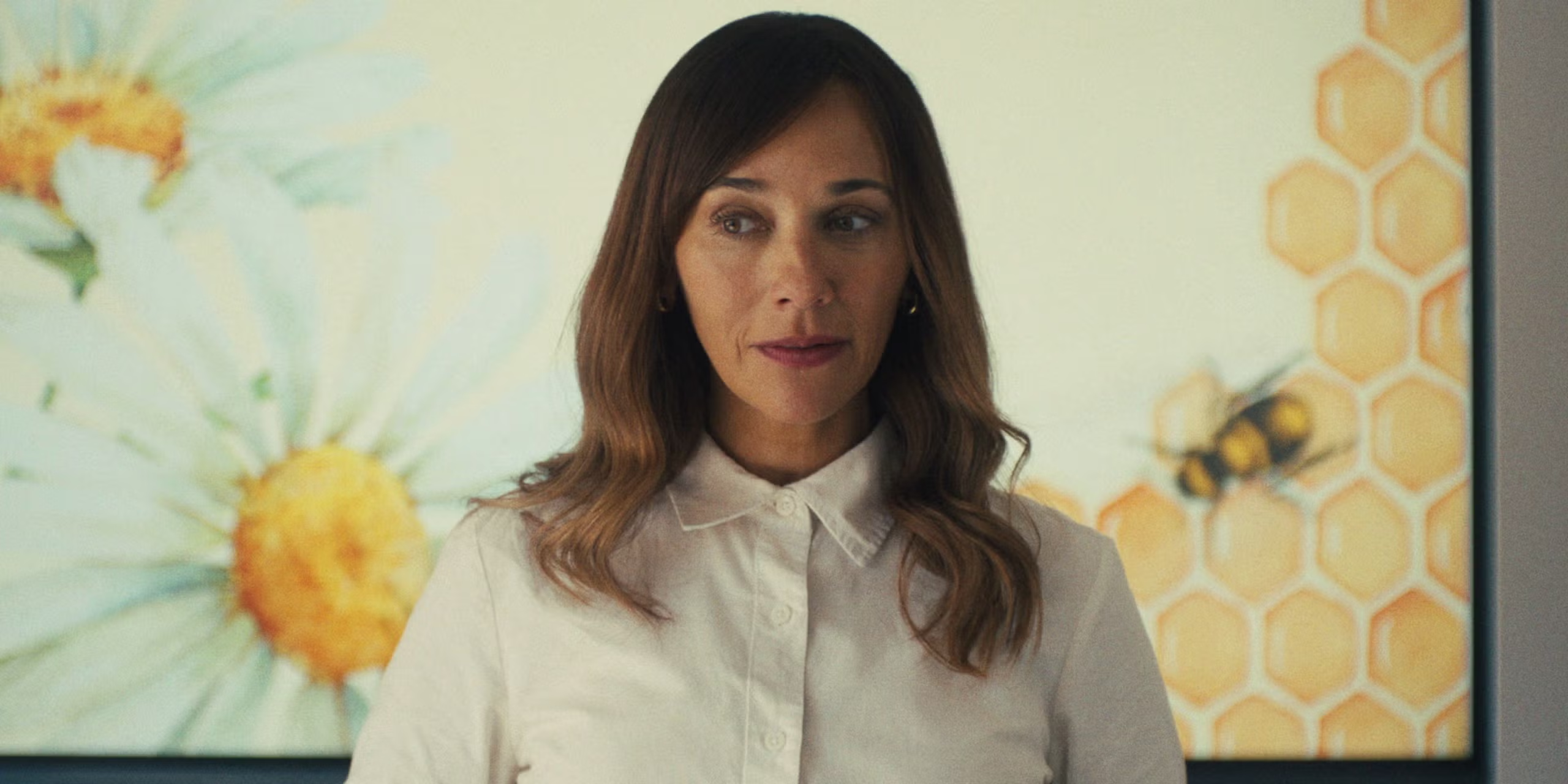
Black Mirror returns for a seventh season, with a star lineup that includes Rashida Jones, Tracee Ellis Ross, and Issa Rae—who enter the bizarre realms of the sci-fi series with unsound comedy and deep human emotion.
Netflix’s Black Mirror occupies its own genre. The canon of the sci-fi anthology created by English writer Charlton Brooker edges (and sometimes satirically educates) viewers about technology being all-consuming; making living life indecipherable in the ways we cannot detach from our devices for a greater well-being. Out April 10th, Black Mirror returns with 6 episodes for its highly anticipated new season. The “Hotel Reverie” episode features actor and writer Issa Rae racing against the rolling credits in a Casablanca-style old Hollywood film. Episode “Common People” features Rashida Jones and Tracee Ellis Ross doing whatever it takes to fight against their own human mortality. Through Brooker’s extremist-yet-hyper-realistic plot points, Black Mirror’s swing at detailing how human demise comes from our outward attachments to technology operates heavily with big doses of dark comedy and unrefined human emotion.

Rae throws on a vintage tuxedo and replaces character Alex Palmer, a medicine doctor who rescues the day in a fictional cinema classic. The Emmy Award-winner plays the Black woman stand-in for a white male protagonist in an imaginary story to repurpose the popularity of a once successful Keyworth Pictures’ franchise. Connecting to how Rae subverts roles and stories to include more Black perspectives, the meta concept is that “Hotel Reverie” starts off with Rae as Brandy Friday, a longtime actress who is seeking to reinvent her career with a daring role after feeling pigeonholed by fame. “This time period is really limiting in terms of what Hollywood is making and what they’re scared to put out and risk-take with,” Issa Rae reminds me at a Beverly Hills Hotel. She leans forward, “I want to take myself out of the box of permission, I just want to make what I want to make when I want to make it.”
The California native’s sentiments towards the state of the industry relates to Black Mirror’s Brandy Friday character seeking creative inspiration and redemption. Pushing herself to commit to a role outside of her wheelhouse, Friday materializes as the gender-switching protagonist in the film studio’s historic IP, all by the revolutionary advancements of the new AI tech service, Redroom. Friday’s attempted acclimation to her new cinematic environment causes a cataclysmic shift in the original storyline that revolves around starlet Dorothy (Emma Corrin) and her romantic affinity. “Dorothy and Alex Palmer are long gone but that doesn’t mean that they don’t have a say over how their images are used and we are dealing with that now,” Rae describes how her character being imported in a vintage film relates to the early AI technology of today. “Even with AI being fed tons of writers in Hollywood’s scripts,” Issa Rae follows up with, “it is all to ultimately exclude [us] writers.”

The stakes of the episode become dire as Friday fights for survival against time, human nature, and the Black-and-white aesthetics of a 1930’s megahit. Additionally, she must follow along the plot to stay alive, she really does it for the plot for her own safety. In real life, Rae refers to Love & Basketball being the main film she would decide to live in if she had the chance as everyday technology advances.
Similar to another character, in “Common People”, Rashida Jones (Amanda) is a teacher who suffers from a major health accident and must use brain-wave technology to continue to live out her life. Tracee Ellis Ross is Gaynor, the fashion-forward sales advocate for Rivermind, an invasive mind device used for protecting the brain from illness. “There is always enthusiasm when it comes to innovation,” Jones discusses while sitting next to her castmate, Ross, in New York City. “People who are enthusiastic could be diametrically opposed to really considering the long tail of innovation. The breakthroughs that really aren’t considering the ethical parameters around how it might play out in the real world.”
Gaynor provides Amanda with Rivermind’s premium services and the series’ creator plays off how subscriptions have taken over our subconscious. Ross’ character balances the morbid tone of the episode as we experience a household damaged from economic burdens, health scares, and sky-high premiums. “When medicine is involved; then, tech and science, we are sort of compelled to believe it as always a good thing,” Ross chimes in. “But we need to have the time to process what the larger ramifications” are of a service that prioritizes profit over the protection of one’s humanity.

The episodes of “Hotel Reverie” and “Common People” both include women-led organizations with executives such as Ross and Awkwafina. Brooker takes a harder examination on the evolution of tech and science in the way characters perceive their skewed realities with the addition of new advancement. Jones and Rae play vulnerable individuals who are trying to adapt to the evolving world around them while falling victim to those who prey on those for financial gain. “I contemplate mortality a lot,” Jones admits when asked about her character’s pain. “I want to be okay with my death. I want to be okay as I can be with the fact that everybody I love is going to die and accept the beauty and the reality of that.”
Black Mirror explores really grim themes that question the world’s clouded decision-making during excruciating life moments. Brooker takes advantage of the comic brilliance that comes from Rae, Jones, and Ross, and puts them in mental dilemmas that test their connections to their own humanity. “Our stories [as Black women] are so multi-dimensional, and I feel like we’ve barely scratched the surface,” Rae says to me with a light of charisma despite a tangible pushback she feels to tell more Black woman stories. “That is the exciting part. We’ve been through so much throughout history that is untouched.”







